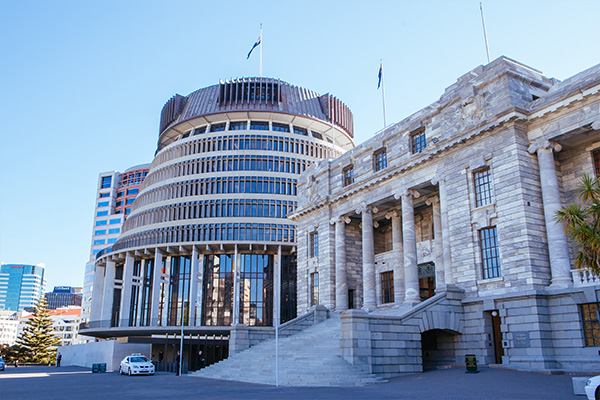Navigating Election Outcomes and Real Estate Prospects
The housing market in New Zealand is about to undergo a shift in light of the recent General Election results. What does this signify for first-time buyers, investors, and homeowners? Let’s explore the possible effects on real estate investors, the bright-line test, and the wider real estate market.
A New Government
With the National Party receiving the lion’s share of the votes, but yet unable to fill a simple majority of the seats in Parliament, a coalition government is in the works. We are yet to see how this will look, but with National at the helm, there are a number of policy adjustments that are widely expected to affect the property market.

Government Policy Changes
A number of policy reforms have been proposed by National that directly target real estate investors, most notably a partial retraction of the bright-line test. National’s plan is to reduce the bright-line period, which is currently ten years for existing homes, to two years.
Furthermore, changes to tenancy laws are intended to provide landlords a greater advantage. Restoring interest expense deductibility is the subject of another policy change, which is an extended process that may take until mid-2026. Property investors should carefully analyse these policy changes as they have the potential to greatly impact their investment returns.
The Current Bright-Line Test
The bright-line test is comparable to a law stating that you may be subject to a tax on any profits you make from selling your home for more than you originally paid if you do so soon after purchasing it. This rule currently states that you must wait 10 years to sell to avoid paying the tax, or only 5 years if you purchase a new-build home. You are not required to pay this tax, though, if you inherit a home or if it has always been your primary residence.
A Two-Year Test
If the bright-line period is reduced as planned, some economists have speculated that many ‘Mum & Dad’ investors would be inclined to sell up. The reasoning was that, having purchased on historically–low interest rates, with most properties still representing 5-year net-positive capital gains, and with the threat of refixing at a considerably higher interest rate, it would be understandable to want to realise those capital gains.
It’s clear that a reduction of the bright-line test could trigger greater activity in the property market. What effect that could have on property prices is a subject that requires more finesse, so get in touch with the team at Rapson to discuss.
Implications for Homeownership
In the past few years, first-time homebuyers have evidently been helped by a number of initiatives, including the previous government’s extension of the bright-line test to 10 years, while being seriously hindered by high property prices and soaring interest rates.
The recent slump in property prices has been tempered by high interest rates and lagging incomes. Serviceability has become the leading pain point for homeowners. With interest rates at the forefront of homeowners’ and potential homebuyers’ minds, the effect of the General Election on their property journeys seems to pivot on the ability of a National-led government to keep a cap on inflation.
Impact on Property Investors
The outcome of the recent general election could have a big effect on real estate investment. According to media reports, a surge of people are preparing to become purchasers in the real estate market, which could increase demand for real estate. However, a corollary perspective presented by a local economist is that the surge in buyers could lead to an increase in the number of property sellers. This line of thought is related to the ‘Mum & Dad’ sell-up prediction above.

Pressure on Rents
The impending legislative changes have put more pressure on rental prices to rise. It’s interesting to note that despite the impending deductibility adjustment that presumably benefits landlords, this pressure has increased. The rising expenses of being a property owner are reportedly the main cause of this increase in rents.
Business and Economic Concerns
Businesses’ concerns about the broader economic landscape, ranging from elevated interest rates to the rising cost of living, have eased a little since the election results were made clear. This follows naturally given National’s reputation of protecting and furthering business and commerce. Even so, we are a small country on the global stage.
We urge real estate players to be educated about National’s proposed policy changes, and consider carefully the influence of potential coalition partners. There will be opportunities to be had – and traps to avoid – as well as false starts and compromises.
Want to learn more about the near future of property? For professional advice and insights, speak with Rapson Loans & Finance. We are here to guide you through the ever-changing real estate market. Stay informed and make wise decisions. Get in touch with our friendly team today.
